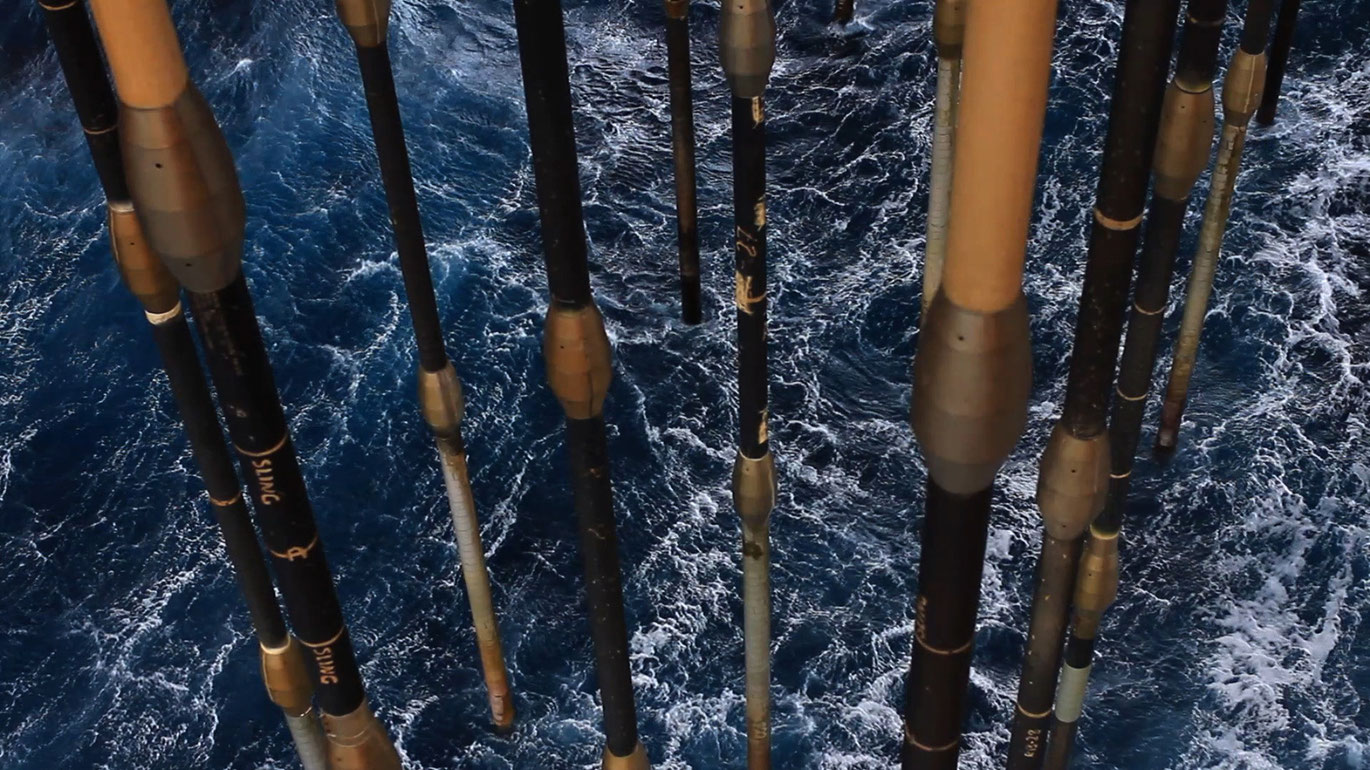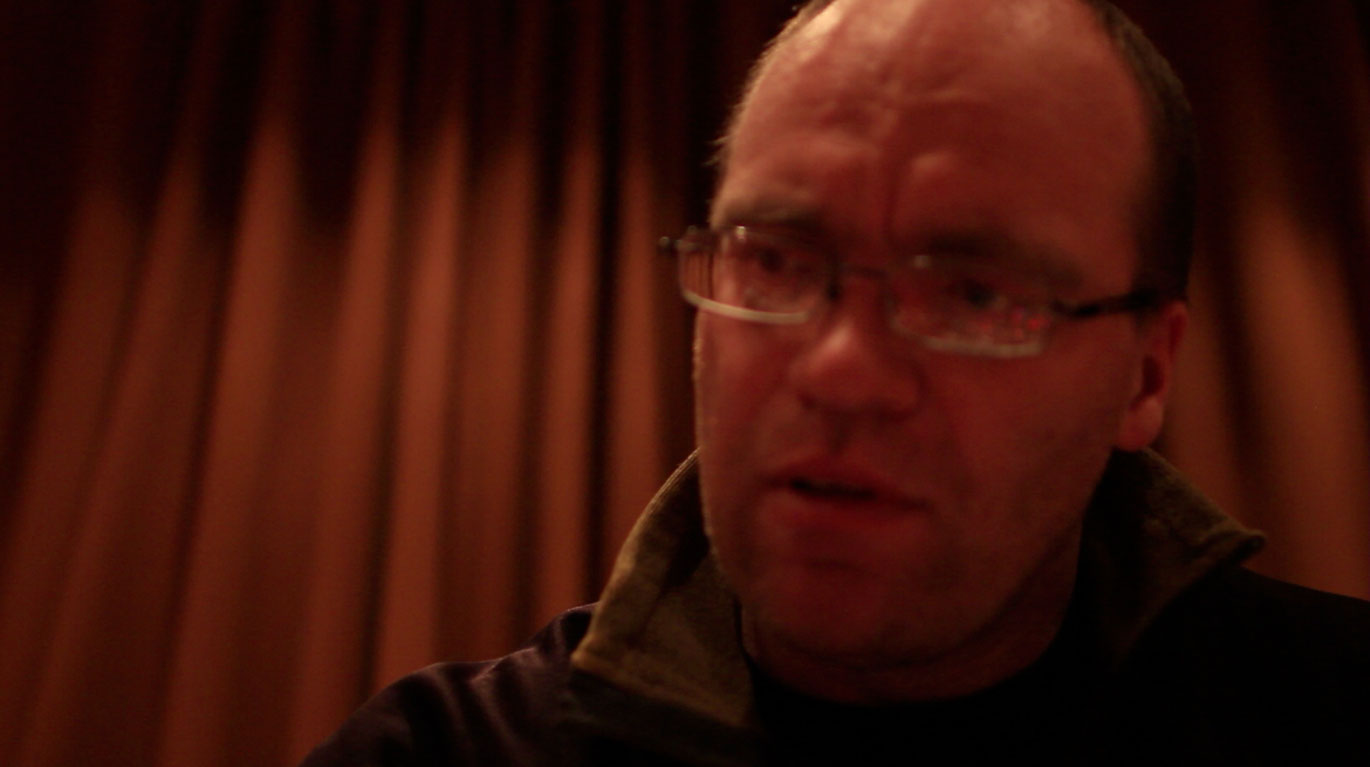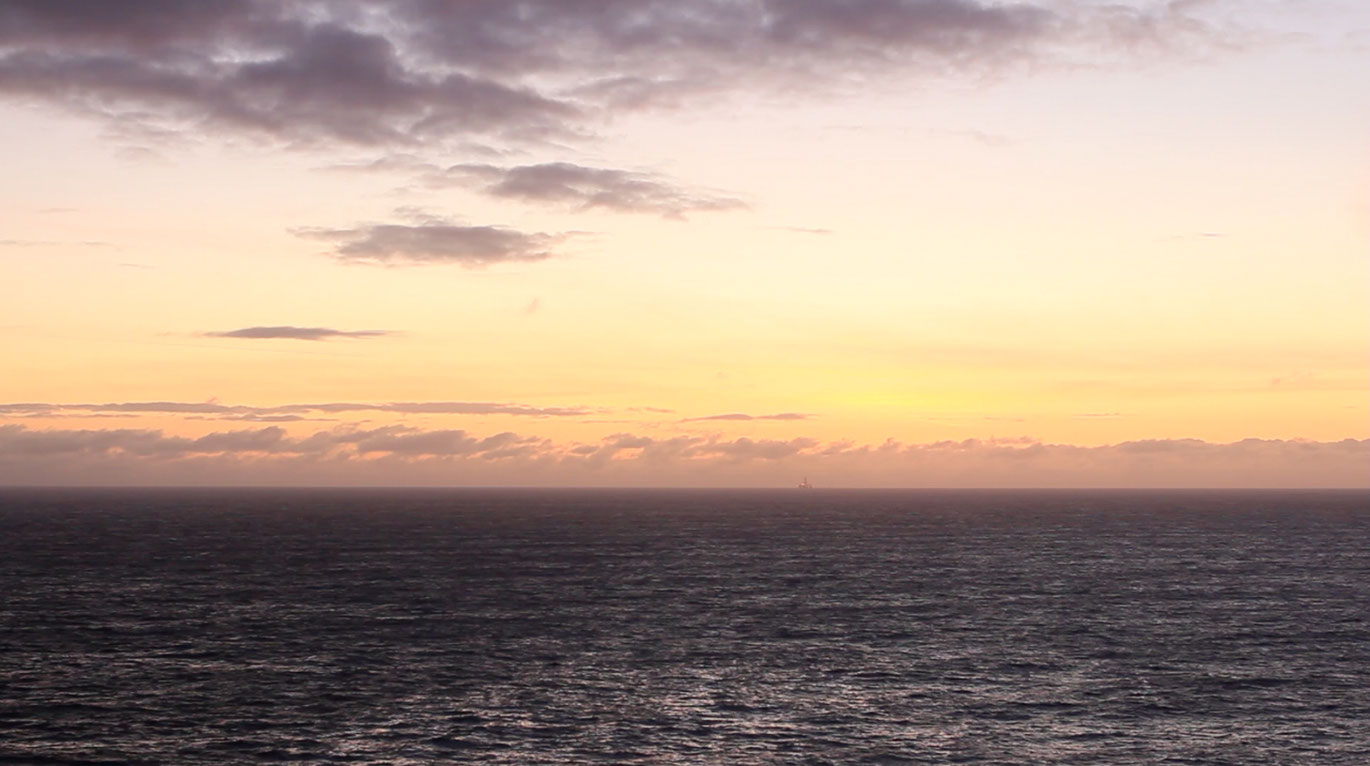Nella Fantasia
The film begins with an image of impenetrable light gray: fog that doesn’t clear. Or possibly the surface of water? This is accompanied by a synthesizer, which establishes a few points of reference that relate to narrative fiction film: Spielberg’s Close Encounters of the Third Kind or, though faintly, Kubrick’s Apocalypse Now. The impenetrability underlines the two-dimensionality of the images that develop from the interplay between a panoramic view and almost claustrophobic constriction. The vanishing point has shifted so far that all sense of perspective is literally absent. The most spectacular example of this is in a shot of gleaming, gray and copper-colored metal rods extending from or into the water, waves and foam raging around them. A machine-like gaze — Vertov’s camera eye — creates an image like this, enables this kind of perception. It creates a world that’s fragmentary, that repeats itself, in which things seem to be strangely animated. Everything vibrates, makes sounds, and comes alive, spawning a presence which the isolated men witnessing this can join seamlessly. In retrospect, after a few shots which were for the most part taken with a static camera, the location of the “events” is revealed: an oil platform off the coast of Norway.
But what’s really happening? The roar of the ocean, storms and alternating day and night; light and dark, and time that must be organized and spent in order to make the solitude more bearable. The music’s kitsch and pathos enters into all that, along with a song that’s sung passionately near the film’s end: “Nella fantasia io vedo un mondo chiaro, lí anche la notte è meno oscura.” This reveals the absurdity of this venture, not only on a metaphorical level, but also in light of the forces of nature at play. Just as importantly, the combination of narrative tropes and genres becomes manifest, and it is still able to make cinema a grand fantasy and wish machine.
(Claudia Slanar)
Translation: Steve Wilder
Nella Fantasia
2012
Austria, Germany
55 min



